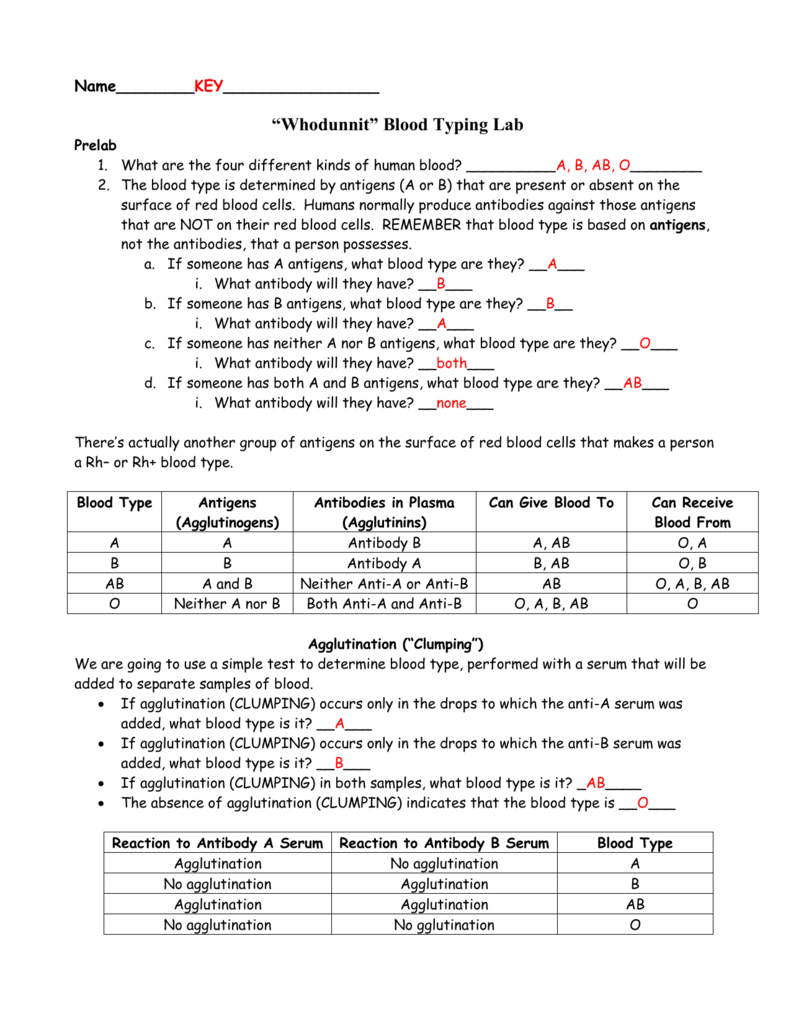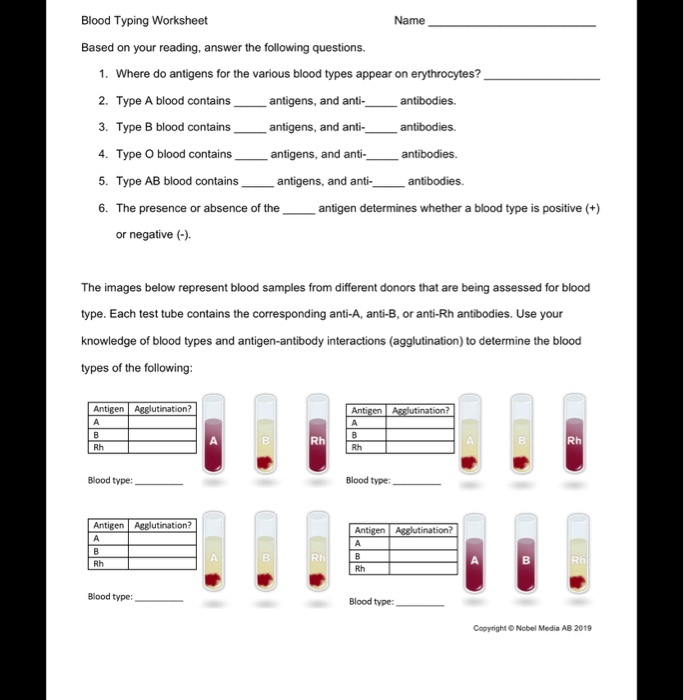Understanding blood types is an important aspect of biology and healthcare. Blood typing worksheets are a valuable tool for students to practice and reinforce their knowledge of blood groups and compatibility. These worksheets typically include questions and activities that help students identify different blood types and understand the principles of blood transfusions.
By completing blood typing worksheets, students can improve their understanding of the ABO blood group system and the Rh factor. They can also learn about the importance of matching blood types for transfusions to prevent adverse reactions. Overall, blood typing worksheets are a hands-on way for students to engage with the topic and test their knowledge.
When using blood typing worksheets, students may be asked to determine the blood type of individuals based on their genotype, phenotype, or blood samples. They may also be required to interpret the results of cross-matching tests and predict potential outcomes of blood transfusions. Additionally, worksheets may include scenarios that challenge students to apply their understanding of blood types in real-life situations.
Through the completion of blood typing worksheets, students can enhance their critical thinking skills and develop a deeper appreciation for the complexity of the human blood system. These activities not only reinforce classroom learning but also provide a practical application of theoretical knowledge. By engaging with blood typing worksheets, students can gain confidence in their ability to understand and analyze blood types.
Overall, blood typing worksheets serve as a valuable resource for educators to assess student understanding and reinforce key concepts related to blood types. By incorporating these worksheets into their teaching curriculum, educators can provide students with a comprehensive learning experience that combines theoretical knowledge with practical application. Through the completion of blood typing worksheets, students can deepen their understanding of blood types and their significance in healthcare practices.

